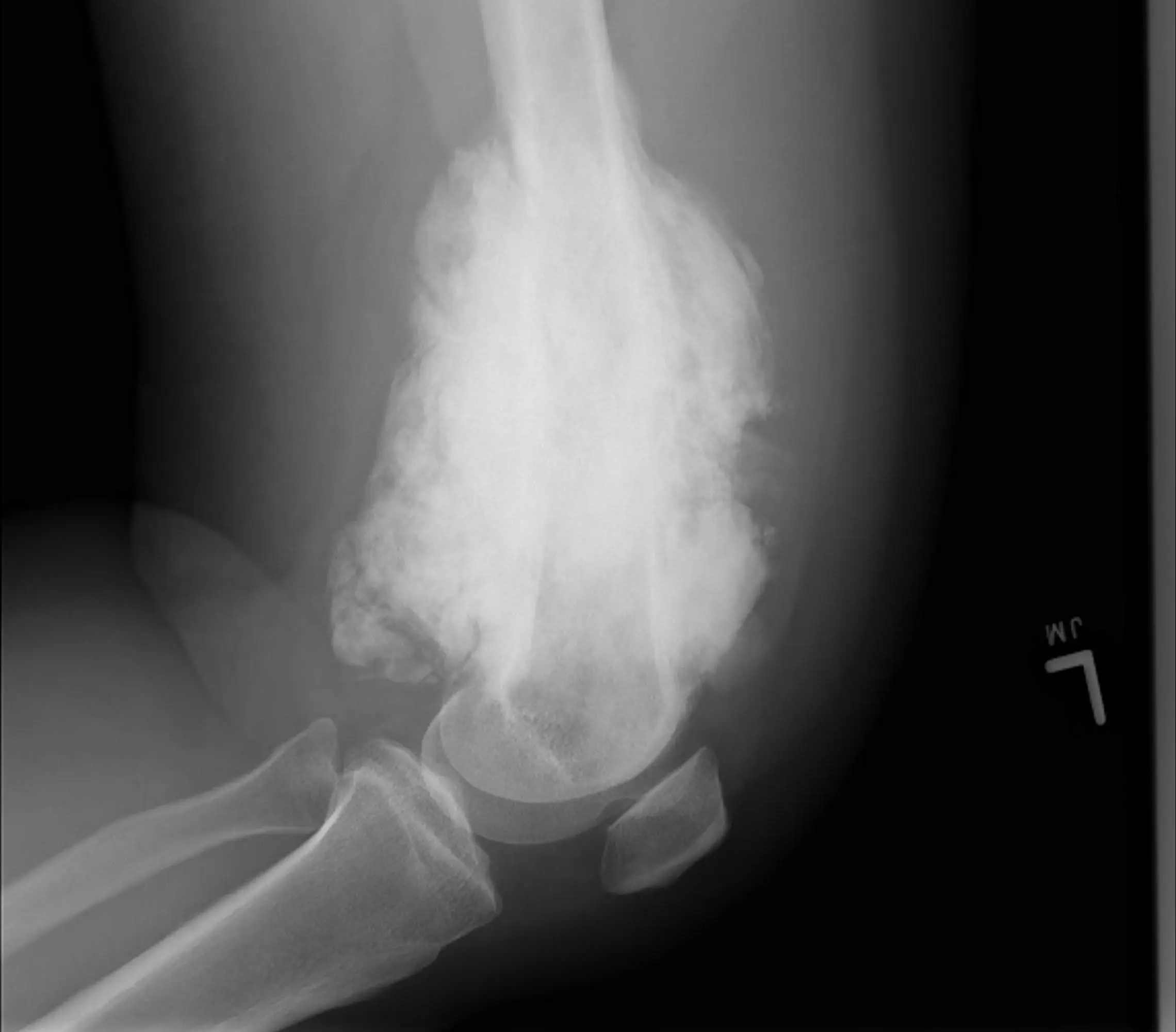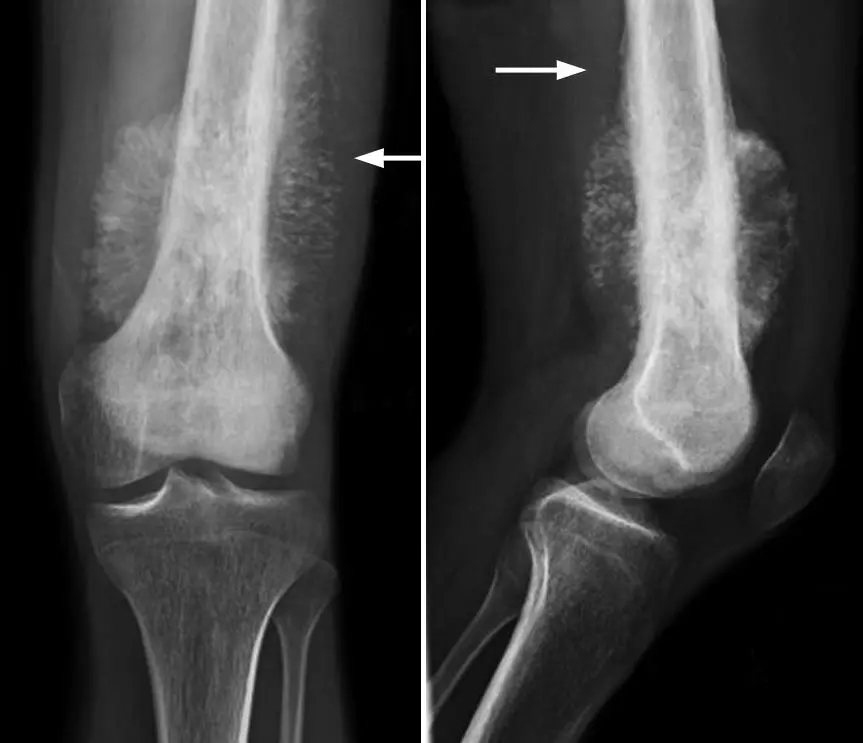Can Osteosarcoma be Cured?
Sometimes
Treatment aims to achieve cure, especially with early diagnosis and aggressive therapy; outcomes depend on the stage at diagnosis, response to treatment, and the extent of surgical intervention

What is Osteosarcoma?
Osteosarcoma is a type of bone cancer that primarily affects the long bones. Treatment involves a combination of surgery, chemotherapy, and sometimes radiation therapy. Prognosis depends on factors such as the tumor’s stage and response to treatment. Ongoing monitoring is important to assess treatment response and manage potential complications.

Clinical Aspects

Characteristics
Aggressive form of bone cancer that primarily affects the long bones

Symptoms
Bone pain, swelling, fractures, limited range of motion

Diagnosis
Biopsy, imaging studies

Prognosis
Variable; depends on the stage and response to treatment

Complications
Metastasis, complications of untreated osteosarcoma
Etiology and Treatment

Causes
Genetic factors, previous radiation therapy, certain genetic syndromes, rapid bone growth during adolescence

Treatments
Chemotherapy, surgery (limb-sparing or amputation), radiation therapy

Prevention
Chemotherapy, surgery (limb-sparing or amputation), radiation therapy
Public Health and Patient Perspectives

Epidemiology
Cancer affecting the bones

Patient Perspectives
Prognosis varies based on the stage and response to treatment
Remember, the information provided here is intended for general knowledge purposes and may not apply to every individual case. To ensure you have accurate information relevant to your specific situation, always consult with a healthcare professional.
Share: